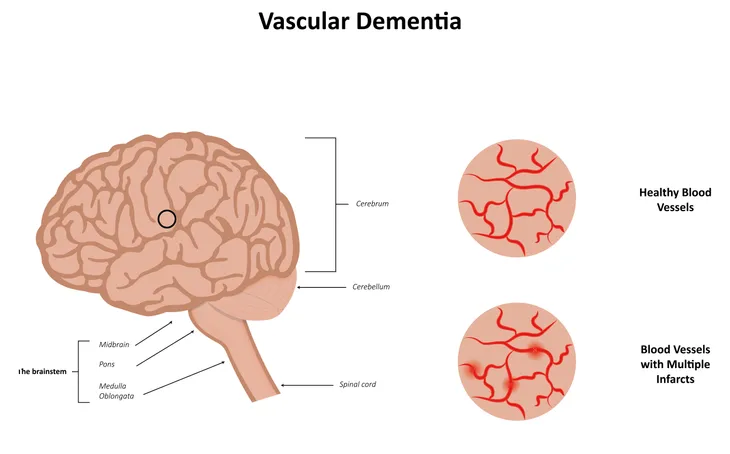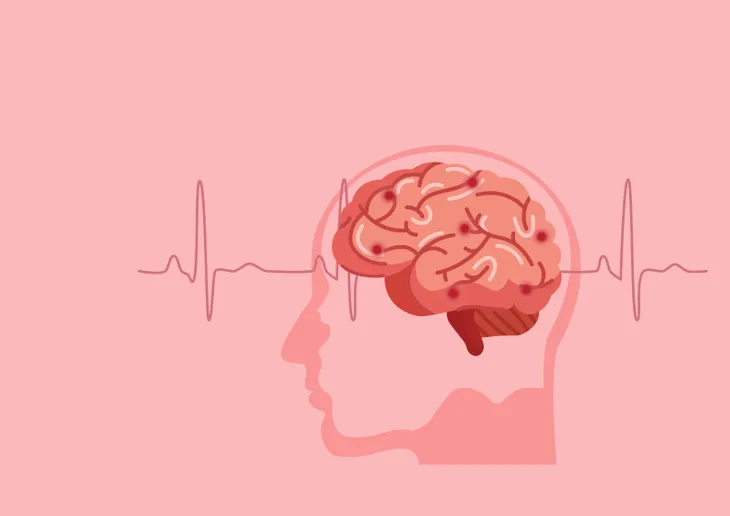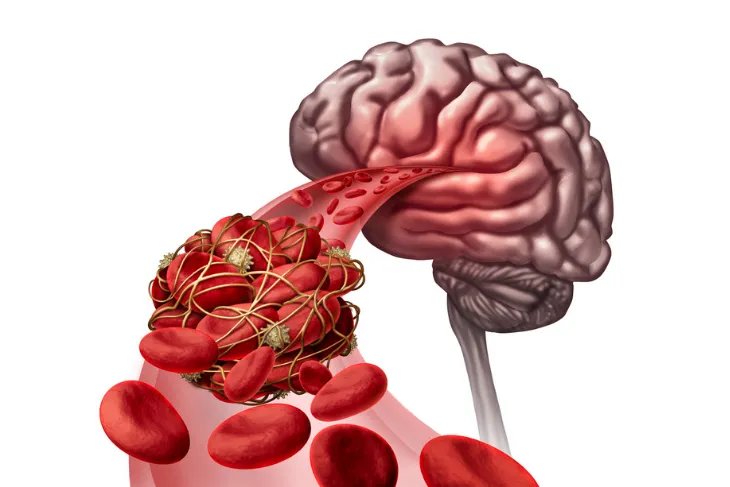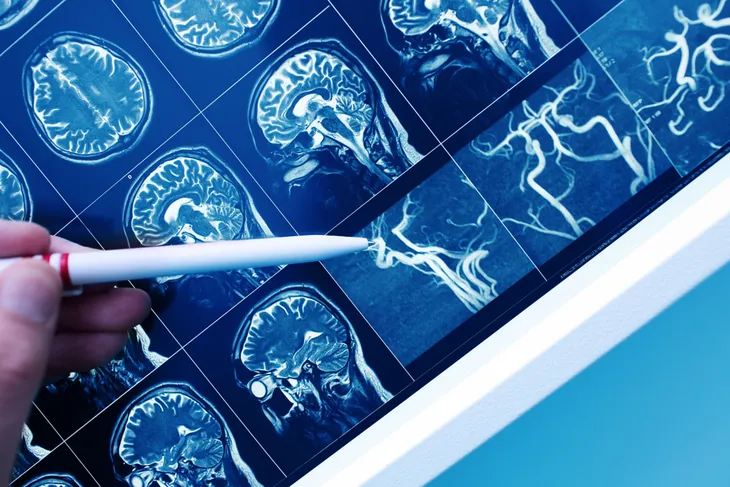- Vascular dementia is a type of dementia that causes changes in cognitive skills.
- It’s the second most common type of dementia that can cause confusion, problems with memory, difficulty concentrating, and more.
- While there is no cure and the general outlook is not good, there are steps you can take to prevent it.
Dementia is an umbrella term for a decline in cognitive skills, such as memory and decision-making. There are many types of dementia too. Alzheimer’s disease may be the most well-known and common but what you may not know is the second most common is known as vascular dementia.
Though it’s common to occasionally misplace items or forget the name of an acquaintance as we grow older, dementia is not a normal part of aging. This is why it’s important to know the signs and see a doctor if they develop. Here’s everything you need to know about vascular dementia, including the common symptoms, causes, and treatment options. We’ll also find out what you can do to prevent it from developing in the first place.
What Is Vascular Dementia?
Vascular dementia is a type of dementia that causes changes in cognitive skills like thinking, memory, and behavior. These changes can be significant depending on “the size, location, and number of vascular changes,” explains the National Institute on Aging.
Vascular dementia is caused by conditions that damage blood vessels and block blood flow to the brain. It’s also the second most common type of dementia, affecting about 5- to 10-percent of individuals over the age of 65.
Common Signs and Symptoms of Vascular Dementia
According to the Mayo Clinic, symptoms of vascular dementia can vary depending on which part of your brain is affected. It’s also common for symptoms to overlap with other types of dementia, such as Alzheimer’s disease. Be on the lookout for these common signs and symptoms of vascular dementia:
- Confusion
- Difficulty concentrating
- Difficulty organizing thoughts and actions
- Slowed thinking
- Problems with memory
- Difficulty with decision making
- Restlessness and agitation
- Unsteady gait
- Sudden or frequent urge to urinate
- Depression or apathy
How Do Symptoms Develop?
Symptoms can develop suddenly or gradually with vascular dementia. For example, the Mayo Clinic explains that some symptoms can occur suddenly after a stroke, which is sometimes called post-stroke dementia. Symptoms can also develop after a series of strokes or ministrokes. The source explains that changes in your thought process typically “occur in noticeable steps downward from your previous level of function.”
In other cases, symptoms can develop gradually, similar to Alzheimer’s disease. In fact, the source says that vascular dementia and Alzheimer’s disease can occur together.
Vascular Dementia vs. Alzheimer’s Disease: What Is The Difference?
Vascular and Alzheimer’s are two different types of dementia and though they can occur together, there are distinct characteristics that set them apart. For starters, Healthline explains that Alzheimer’s “isn’t caused by stroke or low blood flow to your brain.”
Furthermore, the source points out that certain health problems like hypertension, stroke and high cholesterol are related to vascular dementia but they’re not related to Alzheimer’s disease. Finally, vascular dementia typically progresses in stages whereas Alzheimer’s is usually more progressive in decline. Let’s take a look at the stages of vascular dementia next.
The Stages of Vascular Dementia
Vascular dementia can develop suddenly or progress slowly, but according to Healthline it often progresses in a “step-like manner.” It often follows a pattern of decline, then stability, and then decline again. The source says during the early stages symptoms can be mild which can also make a diagnosis difficult. But it’s common to experience a change in memory and mental capabilities.
During the middle stages, the symptoms typically become more noticeable and in the late stages, the changes are even more substantial. The source says that this stage typically happens after a severe event like a massive stroke.
What Causes Vascular Dementia?
Vascular dementia is caused by conditions that damage blood vessels and block blood flow to the brain. One possible condition that can cause vascular dementia is a stroke that blocks a brain artery. The Mayo Clinic points out that strokes don’t always cause noticeable symptoms, but silent strokes “still increase dementia risk.”
Another condition that can cause vascular dementia is a brain hemorrhage. The source says a brain hemorrhage typically occurs when high blood pressure weakens a blood vessel leading to the brain. Healthline notes that other possible causes include diabetes, heart attack, aneurysm, or a blood clot.
Risk Factors
Certain factors can increase your risk for vascular dementia. Since vascular dementia is caused by conditions that affect blood flow to the brain, the risk factors will be the same as those for heart disease and stroke, says Healthline. The source notes that these risk factors are the same for Alzheimer’s disease. So what are they? Risk factors for vascular dementia include:
- Age: as you grow older your risk also increases
- A history of heart attacks, strokes, or ministrokes
- Diabetes
- High blood pressure
- High cholesterol
- Smoking
- Obesity
- Abnormal heart rhythm
Diagnosing Vascular Dementia
If you or a loved one is experiencing symptoms of vascular dementia, see a doctor. While there’s no specific test to confirm vascular dementia, a medical professional will evaluate your symptoms and review your medical history to confirm a diagnosis. Additional tests may be necessary as well, such as computed tomography (CT) scan. This test can take a more detailed image of the brain than general X-rays.
Your doctor may also order an electroencephalogram (EEG), FDG-PET scan, or magnetic resonance imaging (MRI). Johns Hopkins Medicine says neuropsychological assessments may also be necessary to help “sort out vascular dementia from other types of dementia and Alzheimer’s.”
How Is Vascular Dementia Treated?
Unfortunately, brain damage can’t be reversed but the Cleveland Clinic says the goal of treatment is to prevent or slow down additional damage “by managing the factors that are controllable.” One treatment option is medication. Your doctor may prescribe medication to treat the health problems that are causing vascular dementia, such as medication to lower blood pressure or cholesterol.
The source says there’s also medication available that can help improve thinking difficulties as well as depression if you’re experiencing these symptoms.
Home Remedies and Lifestyle Changes
According to the Mayo Clinic, it’s common for doctors to recommend lifestyle changes and home remedies too. The source explains that while no evidence proves home remedies can alter the course of dementia, these suggestions can help the individual live a healthy life. For starters, the doctor may recommend regular exercise and a healthy diet. It’s also important to maintain a healthy weight.
To support brain health, the doctor may recommend that you challenge your brain with puzzles, games, and trying new activities. Engaging in social activities may be helpful too.
Treatment: Support
Seeking support is another important part of treatment. A dementia diagnosis can be both devastating and challenging for the individual and their loved ones. Support groups can help you feel less alone and can help you cope with the disease.
In addition to seeking professional support, you can also support your loved one by providing a calm environment, respecting their independence (as long as it’s safe), and spending quality time with them. The Mayo Clinic says it’s also helpful to be there for the person by listening to them and providing encouragement.
What Is the Outlook?
The Alzheimer’s Association explains that like other types of dementia, vascular dementia also shortens life span. While the rate of decline can vary for each individual, there is no cure. The source notes that some research says individuals who develop dementia after a stroke “survive an average of three years.”
The goal of treatment is to ultimately slow progression and reduce your risk factors. It’s likely for most individuals to need some type of care. Family members may be able to help care for their loved ones in the early stages but as the disease progresses, they’ll likely need specialized care.
Can Vascular Dementia Be Prevented?
The good news is vascular dementia can be prevented. The Mayo Clinic says since the brain’s blood vessels are linked to your heart health, taking care of your heart can help reduce your risk. So how can you improve your heart health?
The source says you should monitor your blood pressure and make sure you’re in the healthy range. It’s also important to control diabetes if you have it and if you don’t, do what you can to prevent it. Maintaining healthy cholesterol levels and exercising regularly can also support your heart health. Finally, if you smoke it’s really time to quit as smoking can damage your blood vessels. And if you don’t smoke, don’t start!
If you’re worried about your risk of vascular dementia, talk to your doctor about what steps you can take today to prevent the disease.
















